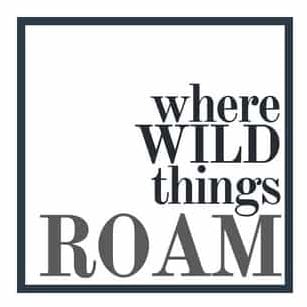One on One with Leighton De Barros from Sea Dog TV International
Four-time Emmy® Award nominee Leighton De Barros has over 30 years’ experience in the television industry, as a producer, director, writer and cinematographer. Leighton has a genuine love and passion for the outdoors and filming Australian wildlife, both in the bush and under the water. He loves the challenge of filming in the Australian environment and subjects that prove a challenge to capture their natural behaviour.
Leighton has won more than 15 industry awards, most recently the 2021 Wildlife Conservation Film Festival (WCFF) award for the film From Sky to Sea in the Best Drone category. He has an impressive resume, working for Netflix, Discovery Channel, Animal Planet, CBS America, Smithsonian Channel, National Geographic Channel, Nat Geo WILD, ZDF, ABC TV, Nine Network, 7mate, Arte France, SWR-Arte, TVNZ, NHK, Channel 5 and the BBC.
Founder and joint CEO of Sea Dog TV International, Leighton is responsible for managing all creative aspects of the company, from development to production. Projects include; Snake Island: Wild & Deadly for Nat Geo WILD; Bushfire Wars for National Geographic Australia, Discovery Germany and 7-mate; Rottnest Island Kingdom of the Quokka for the National Geographic Channel, RAI Italy and Youku China; Dolphin Dynasty for Nat Geo WILD; Wildlife Rescue and Forensics for Channel 9; Super Predator for Discovery US, the highest rating show for Shark Week 2015; Birthplace of the Giants for Nat Geo WILD, The Search for the Ocean’s Super Predator, Hello Birdy, Whale Patrol, On a Wing and a Prayer and Shark Bay.
Off the back of his win with the WCFF, Where Wild Things Roam caught up with Leighton to have a chat about his work, Western Australia and life in the wild.
What first inspired you to get into this line of work?
As a kid I spent my entire life at the beach surfing, I loved the ocean. I also loved cameras. Eventually, I landed a job as a cameraman at a TV station. Using that experience I bought an underwater housing and camera and made my first wildlife film on dolphins while still working at the TV station. I then wrote a film based on the daily life-cycle of the dolphins I had come to film and know and pitched it to ABC TV. They hooked me up with a producer. I left the TV station, made this film and that started my career as a wildlife camera operator and ultimately director and producer.
You have an impressive resume and collection of awards, has there been a standout moment in your career?
The stand-out moment in my career was making my first one-hour wildlife film. It was about the Western Australian state government wildlife officers who rescue whales that were caught in fishing ropes and nets at sea. It was a very powerful experience to be a part of when I was in the boat with the men and women who were cutting these animals free and saving their lives. They also had to euthanise two whales, so extremely sad as well. However, it was the first time these types of operations had been documented in such detail and it was an incredible film and incredible memories.
What does it mean to you and the team to be awarded the winner for the Best Drone category at the 2021 WCFF for the film From Sky to Sea?
We are very proud to have been awarded the winner for the Best Drone category at the 2021 WCFF. I am especially proud and happy for Jaimen as it is recognition for his amazing work. He is an extremely passionate and dedicated aerial cinematographer and he does it all in his own time, while balancing his full-time businesses. Not to mention he has to navigate the day to day restrictions of his injury. So it’s a real credit and recognition for him and very much deserved.
The film showcases not only the dedication, passion and strength of Jaimen Hudson, but also a stunning part of Australia. What makes Western Australia so special?
Western Australia is so special because of its isolation and its rugged and stunning natural beauty. In particular, the coastal and marine environment. We have 10,000 kilometres of coastline, spanning 2 oceans and 1 sea. From the temperate waters of the south to the tropical waters in the north, which remains mostly untouched. WA has an amazing variety of coastal habitats, environments and marine life, it’s truly like no other place in the world.

Your passion for wildlife is incredible, how difficult is it filming animals in the wild and navigating the wilderness areas they exist in?
It’s always difficult filming wildlife and this really is because of the weather. The weather is so unpredictable these days and is such a major factor when filming on the ocean in particular. So having 30-years of experience filming along the coast really helps to be able to know where to be in the right place at the right time for that small weather window and when the animals are also going to be there. The wilderness is also a major factor and plays a big role in logistics and planning. But again, having worked along the entire coast from Esperance in the south to the Wyndham in the north, you build up a fantastic knowledge of the logistical side of things planning boats, choppers, planes and four-wheel drive access etc and this becomes a major part of the planning and budgeting for filming.
How important do you think film festivals like WCFF are to the film industry and conservation?
Festivals like WCFF are extremely important for the industry and conservation. Firstly, from an industry point of view, it allows people to get their films across to audiences in a major market, whereas traditional theatrical distributors, cinemas, streamers and broadcasters are very hard to find for international films to be screened – particularly in the USA. So, our film gets to be seen by an audience that we may never have been able to reach. When you make a film that touches people, it creates an emotional attachment to the people and the environment. And that emotional attachment drives people to support the conservation of the environment, which is so important in today’s current climate.

What are your thoughts on the current state of the planet and the need for conservation?
Sadly, to say we are seeing the real effects of human impact on the planet right before our eyes on so many levels. There is such a disconnect between most humans and the environment today it is alarming. The land, ocean and the animals are suffering. Film festivals like WCFF are so important to drive home these issues and, also promote conservation of the environment across so many levels. Conservation is more important now than it has ever been.
What advice would you give to inspiring filmmakers who are starting out in the industry?
Follow your passion. You get a lot of knockbacks in this industry. If you truly believe in your project it will happen and it’s all up to you. Depending on what you want to do, sometimes the best thing to do is go out and make the project yourself. It’s an invaluable learning curve, but also shows people you are committed and it’s also a good showcase of your skills. Inevitably it will open doors.







